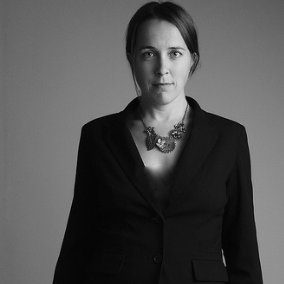FAO
August 25, 2015 (Rome, Italy)
The focus of my studies for most of my life has been in the field of marine science with a concentration in coastal and fisheries management. Professionally, I have been trying to find my ‘perfect fit’ for years, and although I have known about the FAO for a long time, I gained a better appreciation for their work and became interested in the possibility of working with the organization during my summer CBE fellowship in West Africa with the Environmental Justice Foundation. The idea of working in a large, politically driven organization made me uncomfortable. I had worked for a large, governmental organization in the past and thought I would prefer smaller NGO’s to these larger organizations. Small NGOs have the benefits if making significant impacts on small scales, working more closely with local people and communities than many large organizations. Since I worked with a small organization in West Africa and saw that there are also issues with these types of organizations in the context of making differences on the governmental scales- where I found that the biggest impacts can be made- I considered the work the FAO has been doing in the region with NEPAD (New Partnership for Africa’s Development), WARFP (West Africa Regional Fisheries Program), and ECOWAS (Economic Community of West African States) on food security, poverty reduction and capacity development and decided to give it a try.
The organizational structure of large organizations such as the FAO is complex, learning the ropes can take upwards of 8 months. Simply finding one’s way around can take more than 2 weeks. While the face of the organization is structured and formal, the informal and polite nature of the people that make the organization function is great. Because the FAO is located in Europe, there are customs that are embraced such as informal meetings with colleagues over coffee at 10 am and at 3 pm. This openness of supervisors and colleagues helped me to see that one does not have to be cold business minded in all cases to get the work done that needs to get done. There are a time and place for that, one can be kind and nurturing while at the same time being decisive, hard-working and focused. In hindsight, I would have liked to meet more colleagues for informal conversations on the work being done in the various fields.
The FAO is funded by member states (there are 194 member states) that contribute to the annual budget of the organization. Over the course of time, the budget has remained level while costs of personnel and materials have increased. This has led to financial difficulties for the institution resulting in reforms to the administrative and management systems. I came in during a tumultuous period where there were daily worker strikes, rallies, and council meetings. The overall gist is that the rules of work meant that some general service staff that has been on 4 or more short-term contracts were about to permanently lose their jobs. Additionally, the decentralization of human resources (HR was moved from headquarters to Budapest, Hungary) is not effective and the cost savings do not equate to the increase in time and stress levels.

The greatest obstacle I have is the uncertainty in job security. This seems to be a pervasive issue throughout the world; companies are hiring consultants on short-term contracts instead of hiring full-time permanent employees. The struggle over job security is intense everywhere.
While there are issues, the positive aspects of this organization are quite significant; the work that is being done globally and in regional contexts is substantial. There are so many aspects to this job it could never get boring and if you show initiative and interest there is always something to be learned. Working on a global assessment of the impacts of marine protected areas (MPS’s) on livelihoods, ecosystems, and governance was interesting in that the FAO is considered to be a proponent for the implementation of MPAs in developing states. This is not necessarily true and I was able to work with FAO staff to bring together professionals in the field of MPA research to assess the performance and impacts of MPAs in various geographic regions and under various social, economic and environmental contexts. While this is a large undertaking, I was also asked to contribute to ideas on projects in West Africa. This location-specific background knowledge proved invaluable and is the reason I have been hired on for a new contract beginning in September. It has also led to a more significant project with the World Bank (WB) in Liberia first working toward a FAO/WB partnership with the WARFP from FAO headquarters and then possibly (hopefully) moving to the region.
I have learned two important lessons during this program. First, regional expertise is very important; this can make or break a potential job offer. The second one is, for me, the advantages a Ph.D. would make on my career path. I am fortunate to have chosen the path I did. From my Master of Science degree, I have gained important scientific knowledge, research planning, and project management. Based on my studies at MIIS I developed an important background in policy and economics. Additionally, the DPMI course has been incredibly helpful in preparing me for various aspects of the work I have been and will be doing at the FAO and beyond. I am strongly considering the Ph.D. as my next step. While one can excel with a Masters, I am feeling that the skillset and knowledge base I can get out of Ph.D. will greatly increase my options. Additionally, this may shift the baselines for women to stronger positions in large, international and governmental organizations that are currently overwhelmingly male dominated.
I have been able to meet influential people in varying positions all over the world and discuss pathways toward future goals. Though my path has been a bit different, I found that it is this difference that I can excel at a position in the realm of fisheries management and development. I have decided I want to remain in this field in a technical capacity (at a minimum). In September I will return to Rome and continue my work with FAO, one year at a place such as the FAO will be very good for my resume. From here I plan to reach out to potential Ph.D. options in the US and UK. From there I will apply to regional project posts with the World Bank, and a few United Nations organizations including the FAO, UNDP, and UNEP. There is a good chance I will go forward to a managerial position at a headquarters. At the moment I have not decided whether I want to return to the USA or remain abroad.




You must be logged in to post a comment.